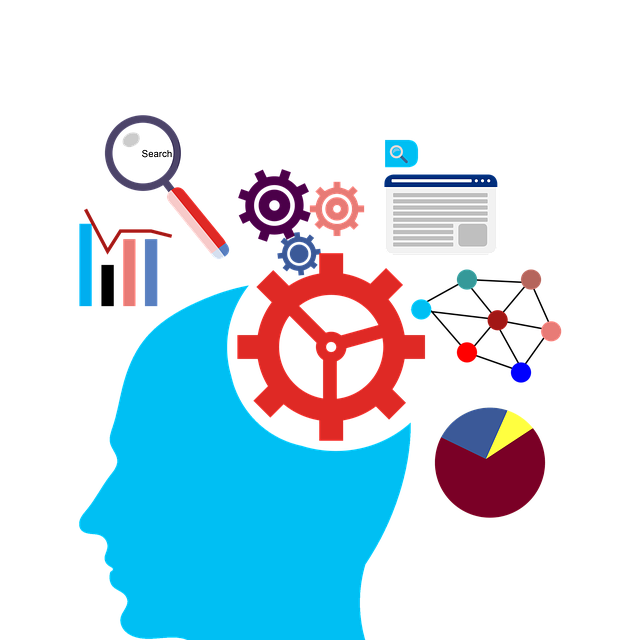Cloud-based AI platforms are transforming business operations with scalable, flexible solutions that enhance efficiency and drive innovation. In culinary arts, AI kitchen automation leverages machine learning algorithms to optimize tasks like ingredient management, inventory control, recipe development, and predictive analytics. This technology allows chefs to focus on creativity while automating repetitive tasks, fostering a dynamic environment that keeps pace with culinary trends. By personalizing menu options, ensuring food quality and safety, and streamlining work processes, AI kitchen automation enhances efficiency, improves customer satisfaction, and empowers chefs to meet modern diners' evolving expectations.
In today’s digital age, cloud-based AI platforms are transforming businesses across various sectors, with culinary arts being no exception. This article explores the groundbreaking potential of Artificial Intelligence (AI) in AI kitchen automation for chefs. We delve into how cloud-native AI solutions enhance efficiency and creativity in food service operations, from streamlining meal preparation to personalizing dining experiences. By understanding these platforms’ capabilities and navigating their challenges, chefs can harness the power of AI to revolutionize their kitchens and captivate customers.
- Understanding Cloud-Based AI Platforms for Business
- The Role of AI in Kitchen Automation for Chefs
- Benefits and Challenges of Implementing AI in Food Service Operations
Understanding Cloud-Based AI Platforms for Business

Cloud-based AI platforms are transforming businesses, offering scalable and flexible solutions that enhance efficiency and innovation. For chefs and culinary professionals, this translates to an exciting new frontier in kitchen automation. These AI systems can optimize various tasks, from ingredient management and inventory control to recipe development and predictive analytics. By leveraging machine learning algorithms, cloud AI platforms analyze vast datasets, identify patterns, and make data-driven recommendations tailored to each establishment’s unique needs.
Imagine a scenario where an AI platform suggests optimal cooking times based on real-time kitchen data, ensuring consistent meal quality. Or, it could automate inventory management by predicting ingredient usage, minimizing waste, and streamlining supply chain processes. With AI kitchen automation, chefs can focus more on creativity and less on repetitive tasks, fostering a dynamic environment that keeps pace with the ever-evolving culinary landscape.
The Role of AI in Kitchen Automation for Chefs

Artificial Intelligence (AI) is transforming the culinary world, especially with its growing role in kitchen automation. Chefs are leveraging AI-powered tools to streamline their work, enhance efficiency, and elevate their creative processes. These platforms use machine learning algorithms to analyze vast datasets, enabling them to make precise predictions about ingredient interactions, optimize cooking times, and even suggest unique flavor combinations. By automating repetitive tasks, such as inventory management, order processing, and recipe customization, AI kitchen automation frees up chefs’ time, allowing them to focus on innovation and culinary art.
Moreover, AI can enhance the overall dining experience by personalizing menu options based on customer preferences and dietary restrictions. It enables real-time monitoring of food quality and safety standards, ensuring consistency in taste and hygiene. With AI assistance, chefs can experiment with new techniques, explore diverse cuisines, and adapt to dynamic market trends, ultimately elevating their professional capabilities and keeping up with the evolving expectations of modern diners.
Benefits and Challenges of Implementing AI in Food Service Operations

Implementing AI in food service operations offers a plethora of benefits, notably enhancing efficiency and customer satisfaction. AI kitchen automation for chefs can streamline routine tasks, from optimizing recipe scaling to predicting ingredient shortages, thereby reducing waste and labor costs. Advanced algorithms can analyze customer preferences and trends, enabling personalized menu recommendations and improving overall dining experiences. Furthermore, AI-driven systems can monitor food safety by detecting potential contamination sources and ensuring compliance with health regulations.
However, challenges exist, particularly in integrating AI seamlessly into existing workflows. Data privacy and security are paramount concerns, as food service operations handle sensitive customer information. Ensuring data integrity and protection from cyber threats is crucial for maintaining customer trust. Additionally, the initial implementation cost can be high, requiring substantial investment in technology infrastructure and training staff to use new systems effectively. Overcoming these challenges through careful planning, robust cybersecurity measures, and comprehensive employee training will enable food service businesses to harness the full potential of AI kitchen automation for chefs.
Cloud-based AI platforms are transforming food service operations by empowering chefs with efficient kitchen automation. As we’ve explored, these tools offer significant benefits like streamlined workflows, improved accuracy, and enhanced customer experiences. However, implementing AI in the culinary realm also presents challenges related to cost, data privacy, and staff training. By carefully navigating these aspects, businesses can harness the power of AI kitchen automation to elevate their services and stay competitive in the modern gastronomic landscape.
